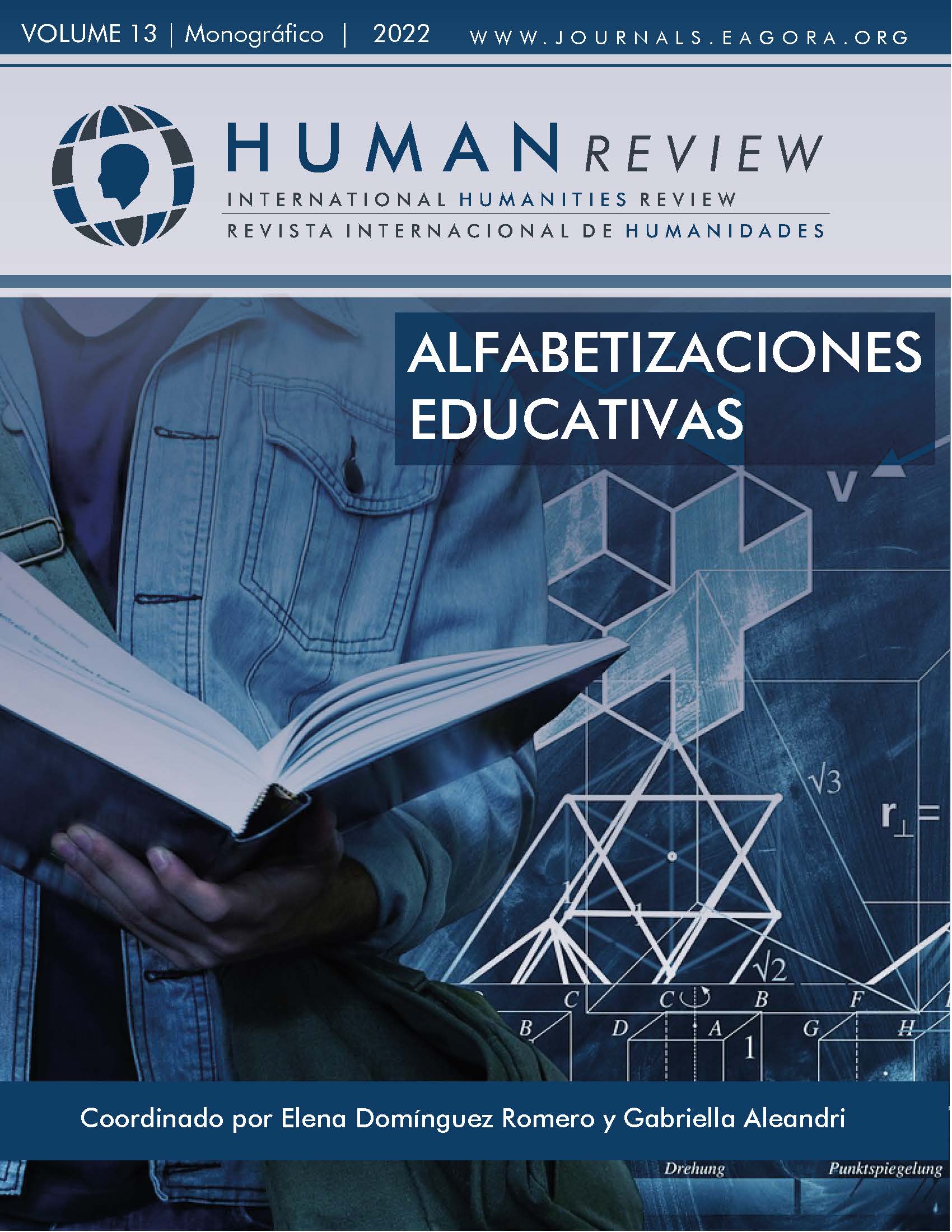Digital Competence for Teachers and Students in a Legal and University Context
Keywords:
Digital competence, Teachers, Students, Teaching, e-LearningAbstract
Today both students and teachers need to obtain digital skills. Focusing on the Degree in Law, we are facing the challenge of adapting new techniques to correctly, ethically and effectively train all its members. In this sense, it is about analyzing and trying to address the use of technology for learning and its underlying complexity, as well as the teaching process and the need to support students.
References
Aziz, A.; Telang, R. (2016). What Is a Digital Cookie Worth? SSRN. https://tinyurl.com/y4ovnyf6
Bartolini, C., Santos, C., Ullrich, C. (2018). Property and the cloud. Computer Law & Security Review, núm. 2, abril, 2018, 358-390.
Basantes-Andrade, A., Cabezas-González, M. Casillas-Martín, S. (2020). Los nano-MOOC como herramienta de formación en competencia digital docente. Rev. Ibérica de Sistemas e Tecnol. de Inform, (E32), pp. 202-214.
Boyd, D. (2014). It’s complicated: The social lives of networked teens. Yale University Press, New Haven.
BPP (2018). BPP Plan to launch new legal tech module for lpc students, insight, bpp. https://www.bpp.com/insights/BPP-plan-launch-new-legal-tech-module
Cárdenas-Robledo, L. A. & Peña Ayala, A. (2018). Ubiquitous learning: A systematic review. Telematics and Informatics, 35(5), 1097-1132.
Cárdenas-Robledo, L. A., Peña Ayala, A. (2019). A holistic self-regulated learning model: A proposal and application in ubiquitous learning. Expert Syst. Appl. 123, 299-314.
Cheng, Y. (2014). An empirical examination of factors affecting college students’ proactive stickiness with a web-based English learning environment. Computers in Human Behavior, 31, 159-171.
Chiu, P.S., Huang. Y, Kuo, Y. & Chen. T. (2009). A Meaningful Learning based u-Learning Evaluation Model. Eighth IEEE International Conference on Advanced Learning Technologies, 77-81.
Choi, M. (2017). What it means to be a citizen in the internet age: Development of a reliable and valid digital citizenship scale. Computers & Education, 107, 100-112.
Cornali, F.; Tirocchi, S. (2012). Globalization, Education, Information and Communication Technologies: What Relationships and Reciprocal Influences? Procedia - Social and Behavioral Sciences, núm. 47, 2060-2069.
De Marco, S.; Robles, J.M.; Antino, M. (2014). Digital skills as a conditioning factor for digital political participation. The European Journal of Communication Research, núm. 39 (1), 43-65.
Feenberg, S. (1991). Critical theory of technology. Oxford University Press, Nueva York.
Frau-Meigs, D.; O’Neill, B.; Soriani, A.; Tomé, V. (2017). Digital citizenship education: Volume 1: Overview and new perspectives (English Edition). Council of Europe.
Garzón-Artacho, E., Sola-Martínez, T., Romero-Rodríguez, J.M., Gómez-García, G. (2021) Teachers’ perceptions of digital competence at the lifelong learning stage. Heliyon, 7 (7)
Glassman, M.; Kang, M.J. (2011). Teaching and learning through open-source educative processes. Teaching and Teacher Education, núm. 60, 281-290.
Habibi, A., Mukminin, A., Hadisaputra, P. (2020). Science teachers’ integration of digital resources in education: a survey in rural areas of one Indonesian province. Heliyon, 6 (8).
Ireland, Ch.; Hockley, R. (2020). Call for introducing LegalTech in the classroom- Computer Law & Security Review, 36, 2020, 2-19.
Janeček, V. (2018). Ownership of personal data in the Internet of Things. Computer Law & Security Review, núm. 34, octubre, 2018, 1039-1052.
Lévy, P. (2000). La cibercultura y la educación. Pedagogía y saberes, 14, 23-31.
Livingstone, S.; Helsper E. (2009). Balancing opportunities and risks in teenagers’ use of the internet: The role of online skills and internet self-efficacy. New Media & Society, núm. 11, vol. 8, 1-25.
López-Belmonte, J. Pozo-Sánchez, S. Fuentes-Cabrera, A. Trujillo-Torres. J.M. (2019). Analytical competences of teachers in big data in the era of digitalized learning. Educ. Sci., 9 (3)
M.Castells, M. (1996). The rise of the network society: The information age: Economy, society, and culture, Vol. 1.Oxford University Press, Nueva York.
Marqués, P. (2001). Factores a considerar para una buena integración de las TIC en los centros. DIM. http://dewey.uab.es/pmarques/factores.htm
Norton Rose (2019) Norton Rose Fulbright is launching a tie-in with the University of York. https://www.york.ac.uk/law/news/news-archive/2019/norton-rose-fulbright-tie-in/
Nyikes, Z. (2018). Digital competence and the safety awareness base on the assessments results of the Middle East-European generations. Procedia Manuf., 22 (2018), pp. 916-922.
Ready F. (2019). Seeing evolving demands, law firms move to support legal tech education | LegalTech news. LAW.COM, 2019. Recuperado: https://www.law.com/legaltechnews/2019/05/31/seeing-evolving-demands-law-firms-move-to-support-legal-tech-education/
Rodríguez-García, A. (2019) Competencia digital, educación superior y formación del profesorado: un estudio de meta-análisis en la Web of Science. Píxel-Bit Rev. de Med. y Educ., 54 (4), pp. 65-81.
Sharma, R.; Fantin, A.; Prabhu, N. (2016). Digital literacy and knowledge societies: A grounded theory investigation of sustainable development. Telecommunications Policy, núm. 40, Julio, 628-643.
Simsek, E..; Simsek, A. (2013). New literacies for digital citizenship. Contemporary Educational Technology, núm. 4 (2), 126-137.Xxxx

